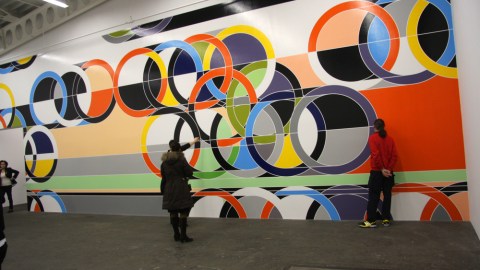Tearing Down the “Fourth Wall” of Design: Is this the Future of the Art Museum?

What’s the Latest?
Margaret Rhodes of Wired has an article up this morning highlighting the new features at the revamped Cooper Hewitt Design Museum in New York. Rhodes describes the goal of the museum’s new layout as a sort of breaking of the fourth wall. That’s because the new Cooper Hewitt strives to include visitors in the art and welcomes them to take part in the creation of design. The way they plan on doing that? By incorporating a number of new interactive technologies designed by installation experts Local Projects (who put a lot of work into the design of the 9/11 museum).
I recommend taking a look at the article and reading about the proposed exhibits before we explore the Big Idea below.
What’s the Big Idea?
From Rhodes’ article, a quote from Local Projects founder Jake Barton:
“We don’t want to be overly prescriptive,” Barton says. “We are playing with the capacity for visitors to design what they make, and give them scaffolding to know what to design and how to do it better.”
There’s obviously an ambitious vision being put into practice here. We see a lot of interactive exhibits in museums highlighting science and/or geared toward children. But this is a relatively new concept for a museum of art/design.
Although many in the art world like to believe people visit art museums to interact with the work, is that necessarily true? Would your typical museum visitor steer more toward the words “interact with” rather than “view” or “explore” or “bear witness?” What do art museum visitors do and what does the museum do for them?
The folks at Living Design specialize in interactive exhibits that “[give] visitors agency over their own experiences.” But is it naive (if not novel) to believe your typical museum visitor wants to spend their time in the building being proactive? Is the viewing of art an active or passive experience?
Barton believes it’s the former:
“A lot of our insights are based on the ways in which people spend time at museums. They’re curious, open, interested, and engaging. They want to express themselves and see their own identity refracted through the museum’s.”
What do you think?
Read more at Wired
Photo credit: 360b / Shutterstock.com




